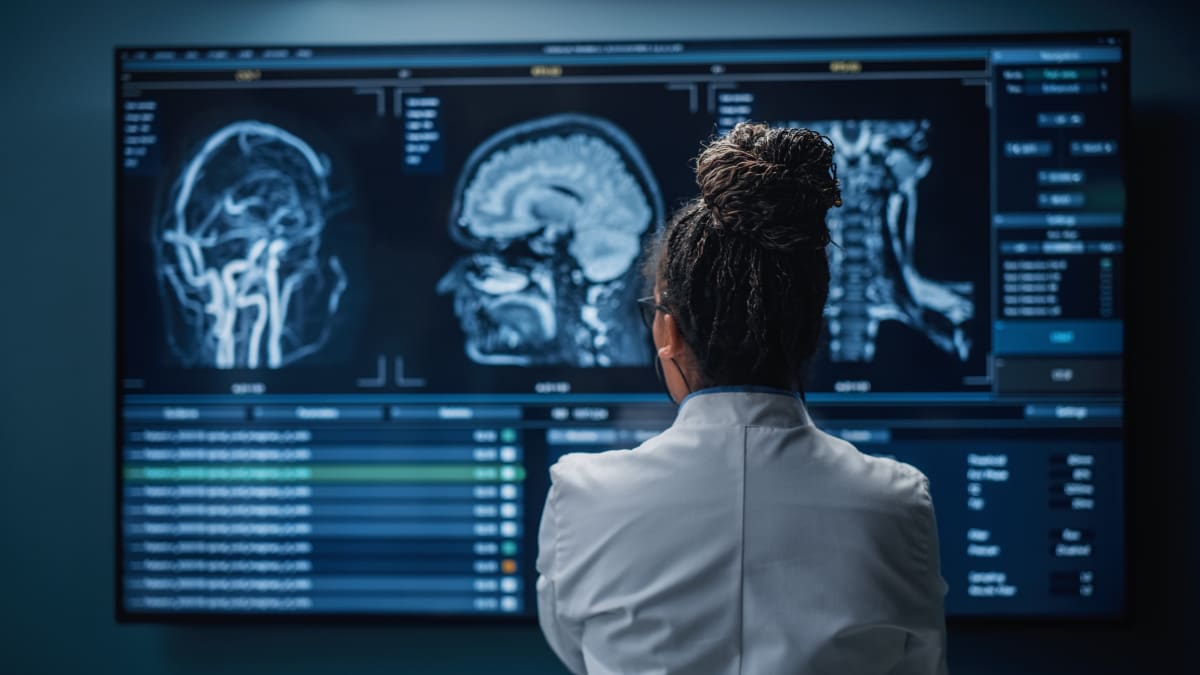
While most of us know sports such as boxing and football carry an elevated risk of concussion, it’s far less-known that 90% of women who experience physical violence from an intimate partner have some form of insult to the brain.
Dr Georgia Symons is on a mission to change that. She’s researching the neurological effects of mild traumatic brain injury and non-fatal strangulation in women who have experienced intimate partner violence (IPV).
“These rates far outnumber brain injuries from sport, yet we don't talk about this nearly as much,” she says.
The project, which is funded by a $2 million National Health and Medical Research Council Ideas Grant, is Australia’s first major grant awarded to investigate the neurological consequences of IPV-related brain injuries.
Non-fatal strangulation in IPV often leaves no visible signs of injury, but the consequences can be delayed by days, or even weeks. These can include a stroke, cardiac arrest, miscarriage, incontinence, seizures, memory loss, and long-term brain injury.
It’s a standalone criminal offence in several jurisdictions, and a major risk factor for homicide.
IPV-associated brain injuries have commonly been under-diagnosed and managed in clinical practice. Dr Symons, a postdoctoral fellow from the Monash Trauma Group (part of the Department of Neuroscience in the School of Translational Medicine), hopes to use her research to improve the problems in diagnosis and clinical practice, and increase education and awareness.
With previous research expertise in sports-related concussion, Dr Symons is well-placed to expand her work now in IPV. Her PhD studies focused on the neurological consequences of engaging in Australian rules football, and saw her investigating biochemical, structural, and cognitive biomarkers of concussion.

Dr Symons’ PhD supervisor and Monash Trauma Group co-leader, Professor Sandy Shultz, says there are nonetheless important differences between IPV and sport-related brain injuries.
“Non-fatal strangulation reduces blood and oxygen supply (ischemia and hypoxia), and can cause reperfusion, or damage to tissues and blood vessels when blood supply returns,” Professor Shultz says.
“That’s why we believe IPV brain injury is worse and unique, as well as more prevalent, compared to concussions in other contexts like sports.”
Professor Shultz says aspects of this project are world-first, including the work on blood biomarkers, PET imaging, and emergency department biomarkers.
IPV injuries are also highly repetitive – in a context of escalating violence, multiple concussions or sub-concussions (which still cause brain damage) will occur in quick succession, with little, if any, recovery time.
“Sporting codes are now implementing mandatory recovery times following a concussion, because repetitive brain insults in short succession can have lasting and more damaging effects,” he says.
“Mandatory recovery times don’t exist in IPV, where the perpetrators often engage in highly repetitive violent behaviour.”
Awareness is increasing
Dr Symons, who took to the streets last November as part of the #16DaysofActivism to acknowledge the contribution of victim-survivors in her research, says awareness among GPs and the justice system of non-fatal strangulation is increasing.
“The research Georgia is leading is tremendously challenging. But her work will provide a foundation to help improve how IPV-related brain injuries can be detected and treated, and will also be used to guide education and prevention initiatives,” says Professor Shultz, who’s collaborating on other related international research projects.
“While brain injury due to intimate partner violence is a sensitive topic, continued discussion and appropriate media reporting are needed to facilitate public awareness,” Dr Symons says.
To participate in the study (seeking women both with and without a history of intimate partner violence) or to find out more, visit the website or contact ipv.monash@gmail.com.
If you or someone you know is experiencing family and domestic or intimate partner violence, please contact the 24-hour hotline, 1800 RESPECT on 1800 737 732. The RACGP has developed advice for clinicians.
This article was co-authored with Elisabeth Lopez, Communications Manager, School of Translational Medicine





